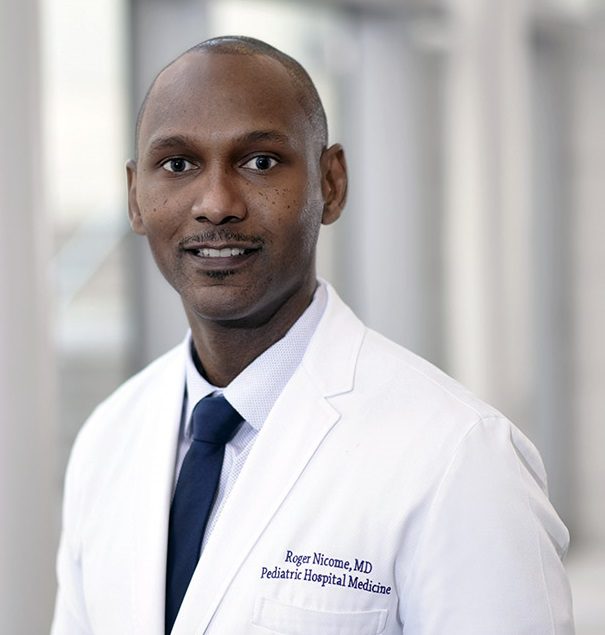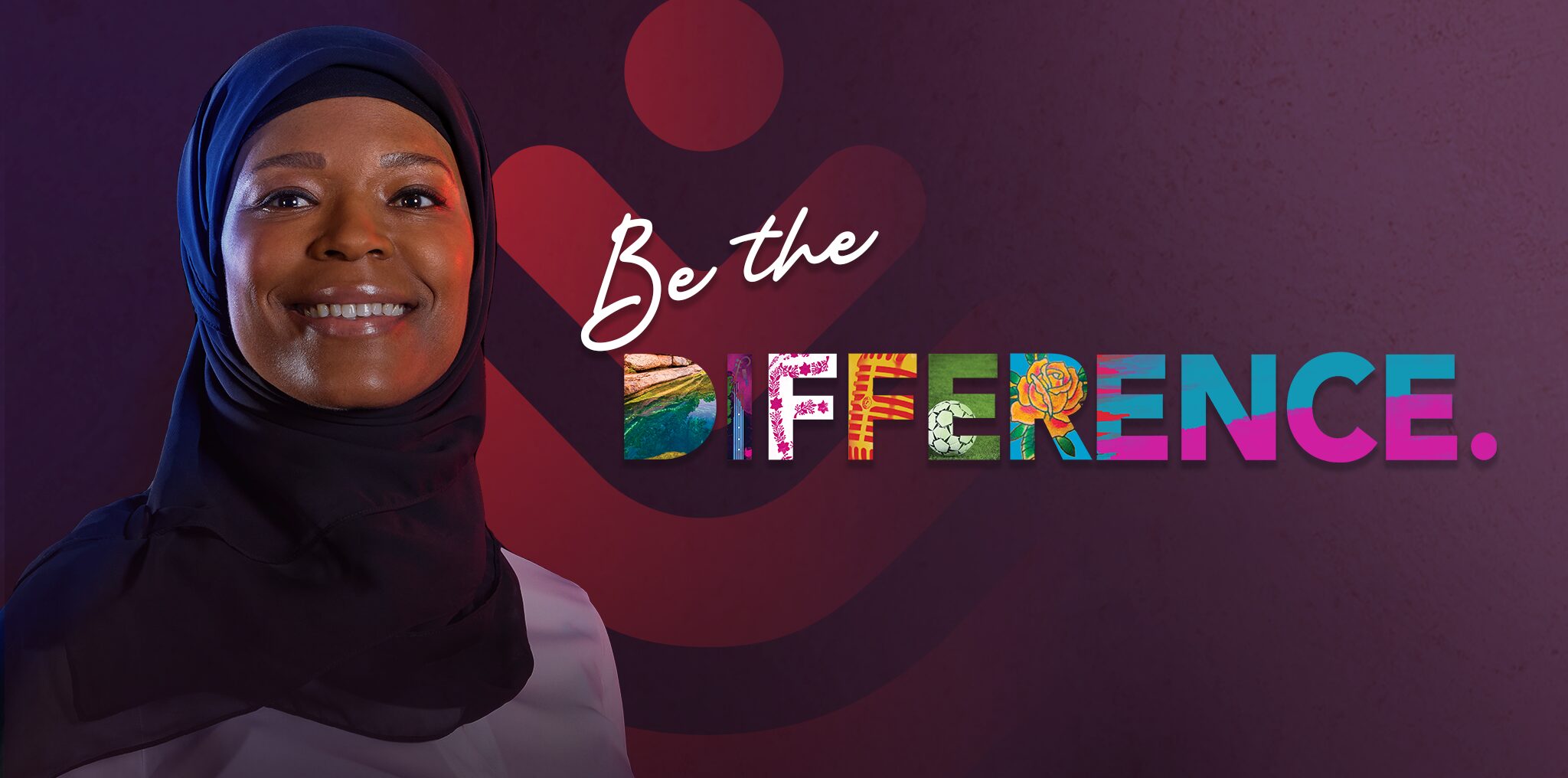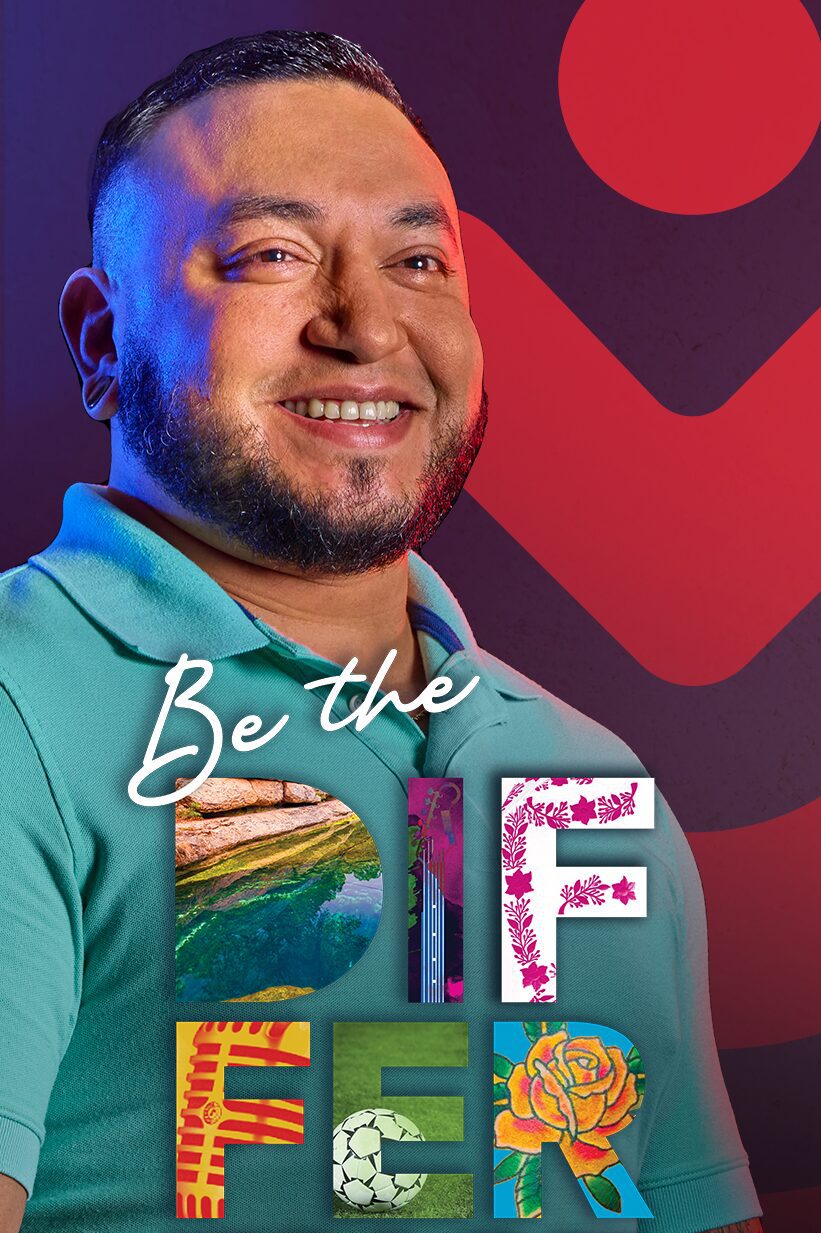For some families, trying to understand complex medical terms and processing the best care methods for their loved ones can feel daunting.
Health literacy is the ability to obtain, read, comprehend, and utilize healthcare information to make decisions that will provide the best care for a patient. Health literacy varies from patient to patient due to numerous factors including education level, language fluency and more. Patients and families also need physicians who consider their cultural needs when making these decisions.
Whether it’s modesty, fasting, or respecting a time that prohibits medicine, our patients have cultural needs that we need to be sensitive to in order to provide the best care. But how do we know what we don’t know? Read on to discover how Dr. Roger Nicome, Director of Patient Experience for the Division of Pediatric Hospital Medicine, creates an inclusive space for patients to advocate for themselves through humility and continuous learning.
How do you Amplify Unity at Texas Children’s?
Nicome: When I first immigrated to the U.S., I planned to go to med school and then return to Trinidad to become a general practitioner. As time progressed, I became closely tied to Texas Children’s, and it has become my new home – it’s a joy to work with my hospital crew. So many doors were opened for me to further my success, and I plan to continue paying it forward through teaching.
It’s often assumed that because doctors speak a lot, we speak well – that’s not always true. Communicating effectively and being an active listener is crucial to providing your patient’s care. I’m passionate about teaching and training others on how to be better communicators to patients and families and I do a lot of this work through being a Breakthrough Communication facilitator.
What are your suggestions for delivering culturally competent care?
Nicome: I encourage others to approach each interaction with humility. I may not be competent in a wide variety of other cultures but, I come from a place of humility and work to gain my patient’s trust so that they’re comfortable with being open. You won’t have the answer to every question and you’re going to make mistakes, but your role is to make a health connection with your patient and create a safe space for them to divulge necessary information to you.
I’ve seen families enter a state of anger, confusion, and sadness because they’re overwhelmed with trying to make the right decision for their loved one. It’s why I always work to ensure that the patients in my care and their families are aware of their condition, and treatment options. I want other families to feel confident in speaking up and getting the information that they need. But this is also a ‘two-way street’ where I encourage my patients to teach me about their culture so that I can best tailor my methods. I also take on the responsibility of doing my own research and learning about my patients whose cultures and backgrounds may be new to me. I’m always learning from my patients, and I work to meet them where they are in their health literacy and work to better my ability of picking up emotional and social cues.
Sometimes I think, ‘How many families don’t speak up when they feel confused or afraid?’ It’s my job to make a safe space for them to share their concerns, needs, and their cultural beliefs so that I can provide the most equitable care possible. It’s my duty to acknowledge the humanity in others and to validate their existence in this world.
What would be your advice to someone who wants to amplify unity but doesn’t know how to?
Nicome: Find out what causes, and identities resonate strongest with you then talk to your leaders. There are tons of ways to get involved, so contact your leaders so they can connect you to the right people.
Also, be willing to say, ‘yes’ to getting involved, even if the role isn’t glamorous. There’s work that needs to be done both in the spotlight and behind-the-scenes. Do the work without needing the flashy title and it will take you far.
Finally, everyone can be an ally because everyone can be kind. Everyone has their place in creating an inclusive culture and there’s honor and power in knowing which role is right for you. Actively listening, being humble, showing kindness, and practicing patience are all great examples of making small changes to have a major impact. It’s like a snowball effect with your actions being the snow – you will continue to build your impact through small commitments and actions that get bigger over time.
Texas Children’s strives to be an all-inclusive environment, nurturing our team members so they can be the most successful they can be in their career with us. Texas Children’s is a place where you can be celebrated for who you are now and where you can grow into who you want to be in the future. Search our open positions and apply today to become a part of our One Amazing Team.




